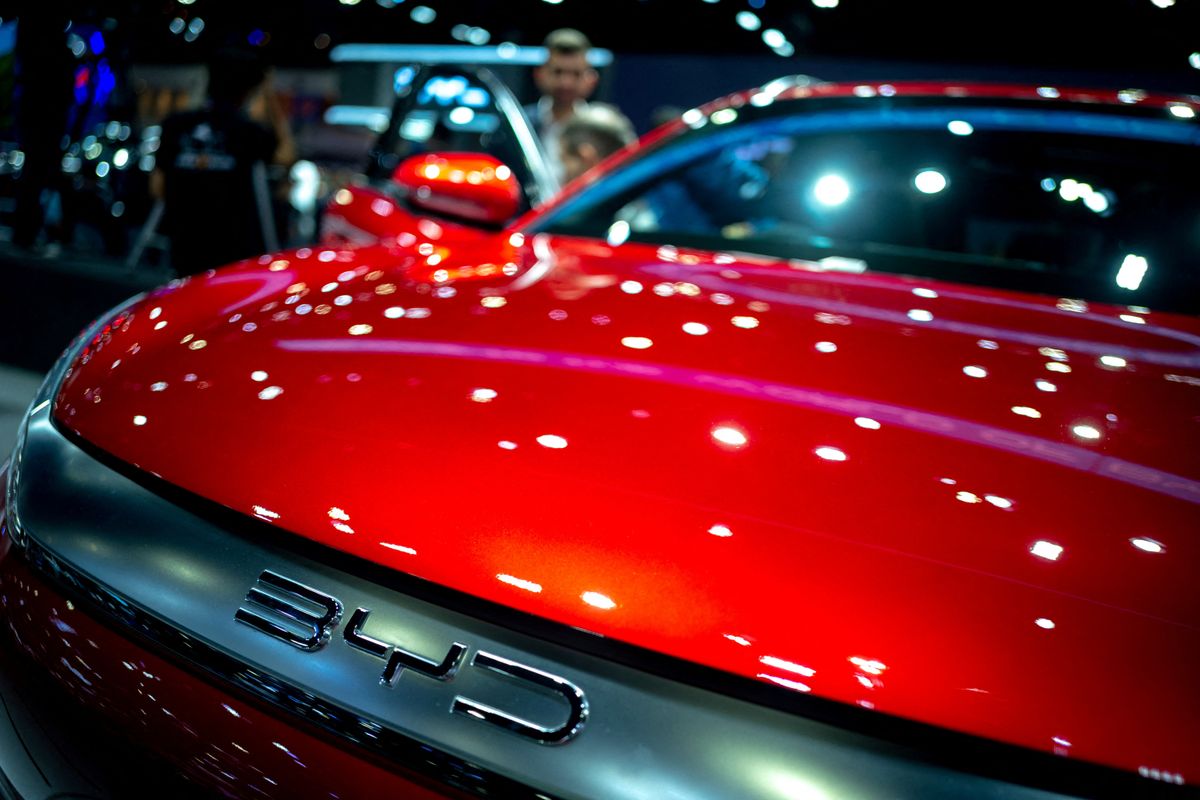Chinese EV dominance in Thailand is challenging Japanese auto giants
According to the Thai-Chinese Chamber of Commerce, major Chinese EV manufacturers have set their sights on Thailand as the ideal spot for manufacturing and distributing EVs to neighboring countries.

A few minutes every morning is all you need.
Stay up to date on the world's Headlines and Human Stories. It's fun, it's factual, it's fluff-free.
The backstory: China's electric vehicle (EV) market has been booming, and foreign automakers like Volkswagen, Toyota, Honda and Nissan are now feeling the heat. Last year, EV sales in China skyrocketed by 87% from the previous year, bringing in over US$5 million in retail sales for new energy vehicles. And Chinese automaker BYD is in the lead. In fact, it even dethroned Volkswagen in April and became China's best-selling car brand for the first quarter of 2023. BYD sold over 440,000 cars in China, while Volkswagen sold 427,247 vehicles, but only 6% of them were EVs.
More recently: Chinese automakers like BYD have experienced some major success not only in China but also beyond its borders. Specifically, there's a shift happening in Thailand, which has traditionally been dominated by Japanese car companies. Now China has emerged as Thailand's leading foreign investor, surpassing Japan. Thai officials have actively been attracting Chinese EV manufacturers, resulting in a transformation of the country's auto industry.
The development: According to the Thai-Chinese Chamber of Commerce, major Chinese EV manufacturers have set their sights on Thailand as the ideal spot for manufacturing and distributing EVs to neighboring countries. In fact, Chinese automakers have invested US$1.44 billion in production facilities there since 2020. Great Wall Motor, for example, acquired a factory from General Motors in Thailand back in 2020 and plans to invest 22.6 billion baht (US$647.38 million) in transforming it into a buzzing production center for EVs and hybrids.
The Thai government is all in on this, too. It’s offering incentives and actively courting Chinese firms, with a goal to convert around 30% of the country's annual vehicle production into EVs by 2030.
Key comments:
“EV is the most trailblazing industry right now as seen through investments from MG, Great Wall Motor and BYD,” said the Thai-Chinese Chamber of Commerce Chairman Narongsak Putthapornmongkol.
"EVs will be a nice pocket of growth," said Thailand’s Siam Motors vice president Sebastien Dupuy in an interview. "There is a market growing for that, and we want to capture the growth."
"We realise that if we would like to be the EV hub of the region, we cannot only build the car assembly industry," said Thailand's Board of Investment Secretary General Narit Therdsteerasukdi. "We need to strengthen the whole ecosystem of EVs."




Comments ()